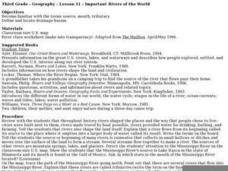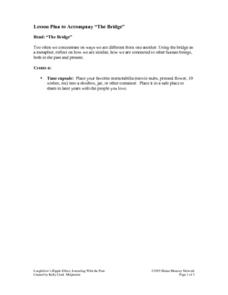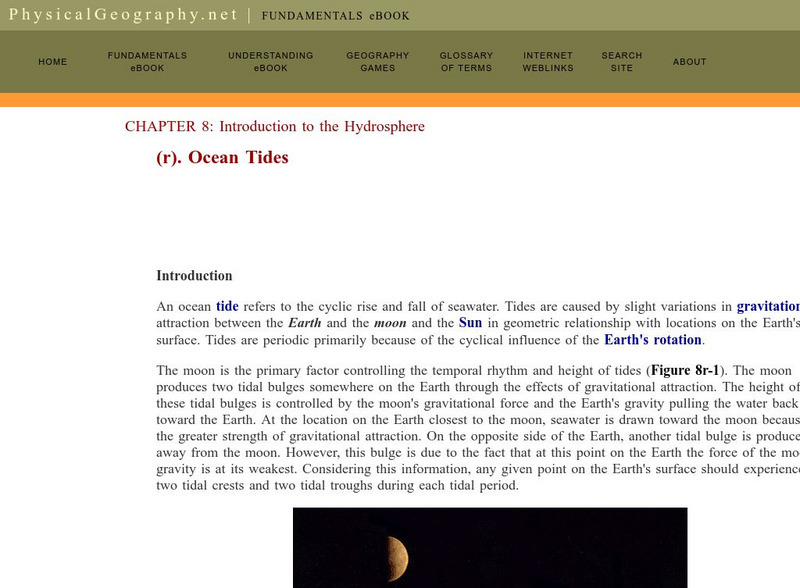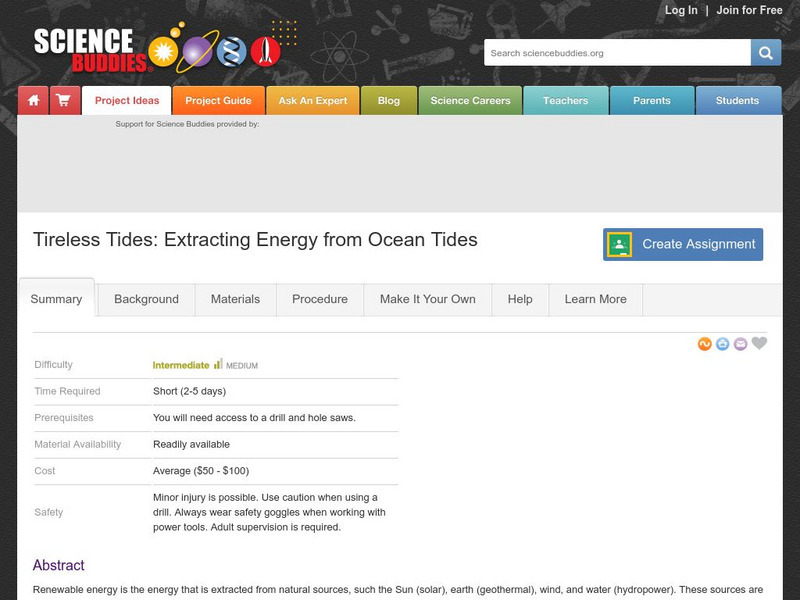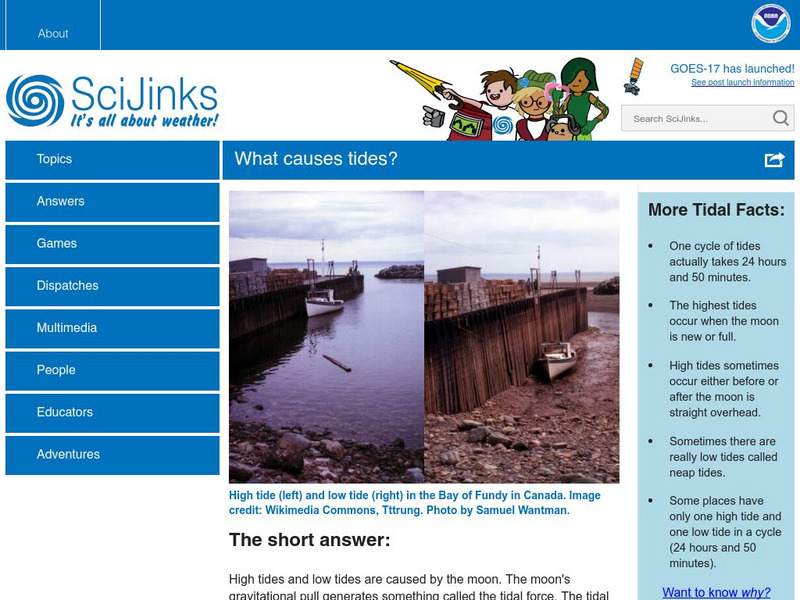Curated OER
A Salty Experiment
Students study salty and fresh waters. In this harbor estuary instructional activity students complete a lab activity on salinity and describe what happened.
Curated OER
Important Rivers of the World
Third graders become familiar with names of the different parts of a river, define and locate drainage basins, locate six of the continents and explore the major rivers on each one, conduct research on a river of their choice.
Curated OER
Marine Communities
Students view a video and then complete lab exercises to help them explain marine communities and animals in them.
Curated OER
"The Bridge"
Students read poem, "The Bridge," by Henry Wadsworth Longfellow, discuss how they are connected to other human beings, both past and present, and create time capsules including their favorite memorabilia.
Curated OER
Harmful Algal Blooms in Full Bloom
Students calculate the total percentage of samples from the data on the graphs. In this marine science lesson plan, students analyze the concentration levels over a period of time. They suggest ways to lessen the effect of these blooms.
Other
Physical geography.net: Introduction to the Hydrosphere: Ocean Tides
This is the last (18th) section of a textbook chapter on the hydrosphere. It explains what causes tides and tidal variations, describes some different types of tides, and shows on a world map where these tides occur. Includes link to a...
Science Buddies
Science Buddies: Tireless Tides: Extracting Energy From Ocean Tides
Renewable energy is the energy that is extracted from natural sources, such the Sun (solar), earth (geothermal), wind, and water (hydropower). These sources are renewable because they can be replenished by the same natural sources within...
NASA
Planetary Geodynamics Laboratory: Ocean Tides and the Earth's Rotation
An explanation of the effect that the tides have on the Earth's rotation.
Texas Education Agency
Texas Gateway: The Moon Lunar Cycle and Tides
Given models and illustrations, students will identify, demonstrate, and predict the sequence of events in the lunar cycle and relate the position of the moon and sun to their effect on ocean tides.
Other
Moon Tides: How the Moon Affects Ocean Tides
Discusses the different kinds of tides, high and low tides, lunar tide facts, questions people have asked about tides, and causes of tides.
NASA
Science at Nasa: Ocean Tides Lost and Found
This article explains what forces are at work on changing the tides of our oceans.
NOAA
Noaa: National Data Buoy Center: What Are Tides?
This site from the National Data Buoy Center presents a brief description of the nature of ocean tides.
NOAA
Noaa: Our Restless Tides
This site provides an excellent explanation of the nature of tides and how they are formed. The one shortcoming is the use of the fictional "centrifugal force", but this is commonly misused in literature.
NOAA
Noaa: Tide and Current Glossary [Pdf]
This site offers definitions of the many and varied terms used to describe tides and currents.
Ducksters
Ducksters: Earth Science for Kids: Ocean Tides
Did you know the rising and falling of the sea level is caused by the gravity of the Moon and the Sun? Kids learn about ocean tides including tidal currents and types of tides on this site.
NASA
Sci Jinks: What Causes Tides?
How do ocean tides work? What causes them? Find out with this resource.
Science Buddies
Science Buddies: Timing the Tides
Have you ever been to a tide pool during low tide? Some intertidal animals in the low tide zone are left in a tiny pool of water when the tides go out. Other intertidal animals that live in high tide zones may be left to dry out during...
NOAA
Noaa: National Weather Service: Jetstream: The Ocean
Online school for weather presents a complete guide to the ocean and its effect on our weather such as El Nino, hurricanes, floods, and droughts. Explores layers of the ocean, sea water, waves, tides, rip currents, and more. A review...
Woods Hole Oceanographic Institution
Whoi: What Causes Tides?
The Woods Hole Oceanographic Institute provides an in-depth but easy to read article on the role of the moon and the sun in respect to tides.
NASA
Scijinks: Tides and Oceans
Discover some interesting facts about tides and oceans and activities which correspond.
NOAA
Noaa: National Ocean Service: Education: Tides and Water Levels
A great resource for explaining and understanding tides. Find out what tides are and why it is so important to monitor them. This is an extensive tutorial followed by a set of review questions. All of the information can be downloaded as...
NOAA
Noaa: National Ocean Service: Tides Online
Coast to coast tide data. Links to state and storm information, historical data and frequently asked questions all about tides.
NOAA
Noaa: National Ocean Service: Education: Currents
Illustrated tutorial explains the numerous factors which shape ocean currents. Animations help students visualize how these aspects constantly affect the water movement in the ocean and how scientists use this information to study ocean...
TeachEngineering
Teach Engineering: One World Ocean
In this activity, students learn about ocean currents and the difference between salt and fresh water. They use colored ice cubes to see how cold and warm water mix and how this mixing causes currents. Also, students learn how surface...
Other popular searches
- Ocean Waves Tides Currents
- Earth Science Ocean Tides
- Ocean Tides and Waves
- Ocean Tides and Currents
- Ocean Tides Activities
- Moon and Ocean Tides
- Ocean Tides Video
- Ocean Tides and Gravity
- Ocean Tides Altimeter
- Environment Ocean Tides
- Ocean Tides Altimetry
- Ocean Tides Activiteis



